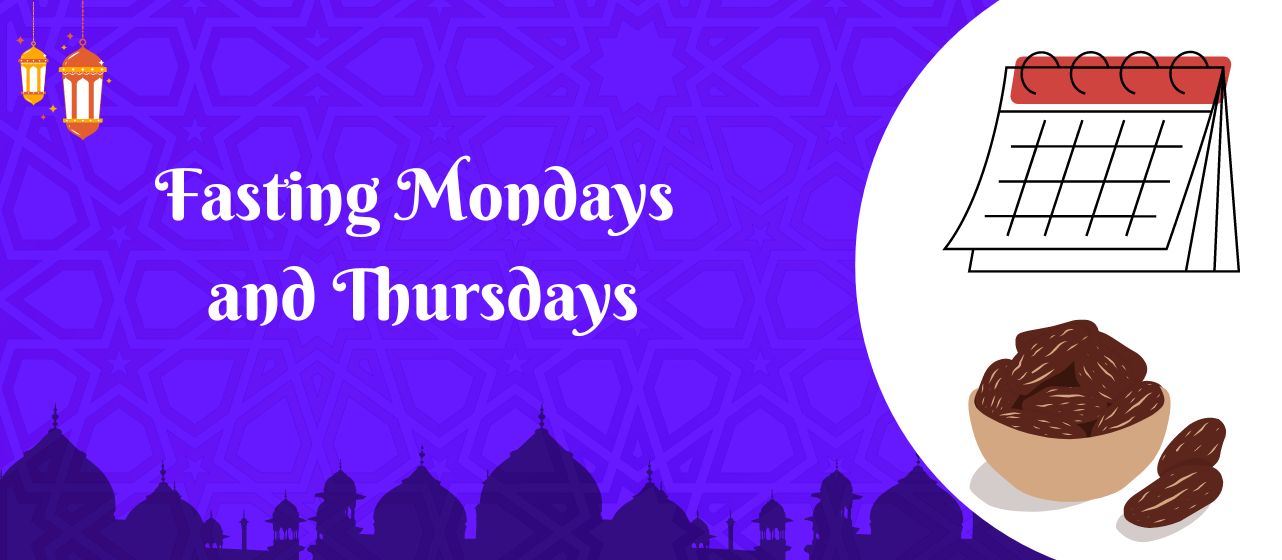Some people say that we fast to feel the suffering of the poor and to share their needs. However, this is a misconception. We don’t fast for this purpose, but we fast to be righteous, inwardly and outwardly. We fast simply because Allah has commanded it. Islam is based on the idea of ”And obey Allah and the Messenger (Muhammad SAW) that you may obtain mercy” ( وَأَطِيعُواْ ٱللَّهَ وَٱلرَّسُولَ لَعَلَّكُمۡ تُرۡحَمُونَ) Surah Āl-‘Imrān. That is why we repeatedly assure that performing obligatory and Sunnah deeds does not require a logical justification. We do the goodness because Allah has said so. No Muslim shall have any doubts regarding the fact that when you obey the Prophet Muhammad, you obey Allah too. When you do the Prophet Muhammad’s Sunnah, you obey Allah. Fasting Mondays and Thursdays is a SUNNAH.
Following the Sunnah brings us closer to the Prophet Muhammad ﷺ. He said about fasting on Mondays and Thursdays;
Abu Huraira reported Allah’s messenger as saying,
“Men’s deeds are presented [to God] on Mondays and Thursdays, and I like mine to be presented when I am fasting.”
When you fast voluntarily, you demonstrate your complete obedience to Allah and your sincere desire for His rewards. Fasting for the sake of Allah carries an immense and unique reward. In a Hadith Qudsi, Allah (swt) says, “Fasting is Mine, and I am the one who rewards it.” You willingly leave your food, drink, and sexual desires for the sake of Allah, and He grants unlimited rewards in return. Through fasting, you train your soul to refrain from sinful deeds, and you learn to control your thoughts and desires. Fasting benefits your mind, body, and heart. Remember that the Prophet Muhammad (ﷺ) said that there are three whose supplications are not rejected, one of them is a fasting person and This applies to both obligatory and Sunnah fasting. It was narrated from Abu Hurairah that the Messenger of Allah (ﷺ) said:
‘There are three whose supplications are not turned back: A just ruler, and a fasting person until he breaks his fast. And, the supplication of one who has been wronged is raised by Allah up to the clouds on the Day of Resurrection, and the gates of heaven are opened for it, and Allah says, ‘By My Might I will help you (against the wrongdoer) even if it is after a while.’
Following the good example of the Prophet (ﷺ) should be enough to convince you about fasting on Mondays and Thursdays. Monday is the day on which the Prophet Prophet Muhammad (ﷺ) was born. We remember our beloved prophet’s birth on this day. If you can not fast the two days, you can fast one day, and Allah makes things easy for us as the Muslim. Fasting on Monday and Thursday is a Sunnah, which means that if the Muslim leaves this Sunnah, they will not be sinful but if the fasting is performed, a great reward awaits them. So why would anyone choose to miss such a blessed deed and its great reward!


